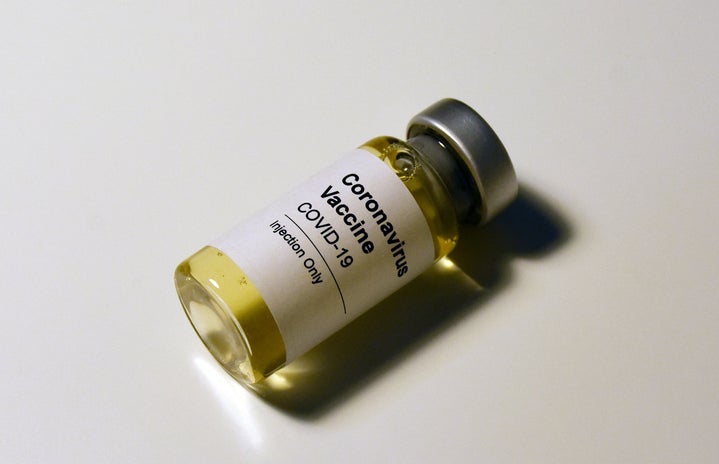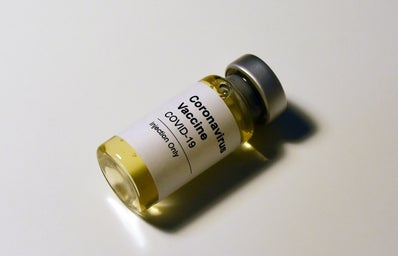As the world continues to battle with the detestable pandemic that has taken over our lives in one way or another, a light at the end of the tunnel has emerged. With hopes of returning a sense of normalcy, vaccines have been developed at unimaginable speed with countries across the globe administering dose after dose. However for some, being offered vaccination brings about deep feelings of anxiety and uncertainty; which are completely valid. Vaccination anxiety is real and it can be harmful, especially in such unprecedented times, hence dealing with it is vital.
Understanding vaccines : what is a vaccine + how it works
As fear often stems from the unknown, understanding vaccines and how they operate is salient in combating vaccination anxiety. Medical terminology can be difficult to understand to most and may even cause misunderstanding if interpreted incorrectly. To put it in its most skeletal form, a vaccine is a substance that stimulates the immune system to produce antibodies, which are proteins that fight diseases. Through this, vaccines provide artificially acquired immunity to individuals. Vaccines have been essential to public health for years, and the coronavirus is no exception. Hence, the United Kingdom has approved three vaccines as of now and is close to reaching their target of 15 million vaccinated individuals. Below, is a simplified summary of these approved vaccines to assist in understanding their complex nature.
Pfizer-BioNTech vaccine : A mRNA vaccine that codes for the virus’s spike protein which triggers the body’s immune system to recognise the virus. Two doses are required twenty-one days apart and delivers about 95% efficacy.
Oxford-AstraZeneca vaccine : An adenovirus-based vaccine that contains the genetic materials of the spike protein of a weakened version of adenovirus that stimulates the immune system to attack the coronavirus. Two doses are required twenty-eight days apart and delivers about 70% efficacy.
Moderna vaccine : A mRNA vaccine that codes for the virus’s spike protein which triggers the body’s immune system to recognise the virus. Two doses are required twenty-eight days apart and delivers about 95% efficacy.
Appreciating the risks and safety concerns
Once the vaccines have been better understood, reluctance to get vaccinated is still likely to linger hence it is quintessential to appreciate the risks and address the safety concerns. A major reason for growing ambivalence towards getting vaccinated is due to the rapid rate of development. Under normal circumstances, vaccines typically take ten years to develop but due to advancements in technology and the urgent demand amidst the pandemic, the race for a vaccine began across the world. This would cause many to doubt the safety of the vaccine and if it has undergone appropriate testing and trials, yet it is necessary to remember that none of the vaccines would have been approved if they were unsafe for the masses. According to organisations like the European Medicines Agency (EMA), the US Food and Drug Administration (FDA), and the World Health Organization (WHO), all approved vaccines are safe. Additionally, as with any vaccines, side effects are a natural response to the injected substance, and pose little risk. Aside from redness, swelling or pain at the injection site, fever, fatigue, headache and aching limbs are reactions that will subside after a few days. There have been reports of serious side effects but these were rare and classified as allergic shock reactions.
Outweighing the benefits over the detriments
Finally, acknowledging the benefits of getting vaccinated may help to ease the anxiety. Not only would getting a vaccine provide protection from having one’s body ravaged with disease but protect those around them as well. Vaccinated individuals are a key part of achieving herd immunity by limiting the transmission of the virus in the community, which will allow us to gradually eliminate the virus. With around 2.3 million deaths worldwide as of now, the dangerous virus has taken the lives of the vulnerable and vaccines are here to slowly bring them to a halt. Getting a vaccine may be scary but it is a part we have to play in ending this pandemic.
Conclusion : one step closer to returning to normal
After evaluating the various benefits and understanding vaccines in their full capacity, vaccination anxiety should be reduced or possibly eliminated. Staying informed and avoiding false news is one way to put increasing concerns at bay. Furthermore, getting offered a vaccination, a chance at protection, is a privilege in itself and we are beyond blessed to be given the opportunity to take a step closer to our ‘new normal’. It has been a team effort all the way, with scientists behind the scenes, pharmaceutical companies working round the clock, researchers spending months and months understanding the virus, frontline workers risking their safety, all waiting for this nightmare to end. And it would only be fair for us to do the same. So, play your part and get vaccinated so we can put an end to this abominable virus, for once and for all.



